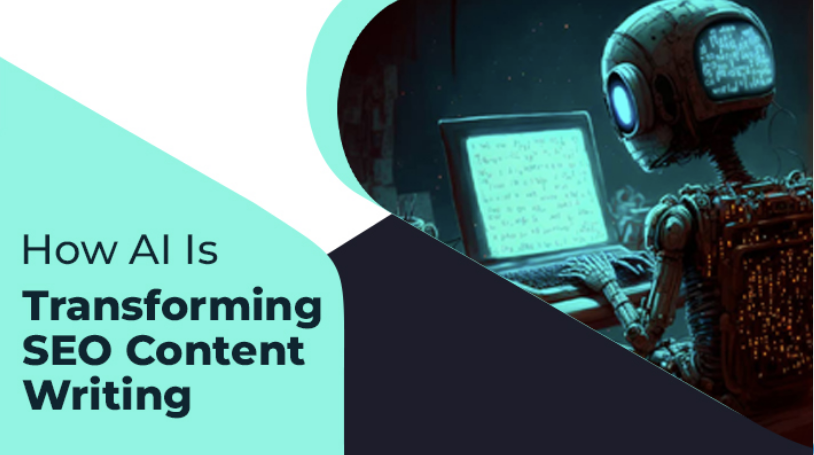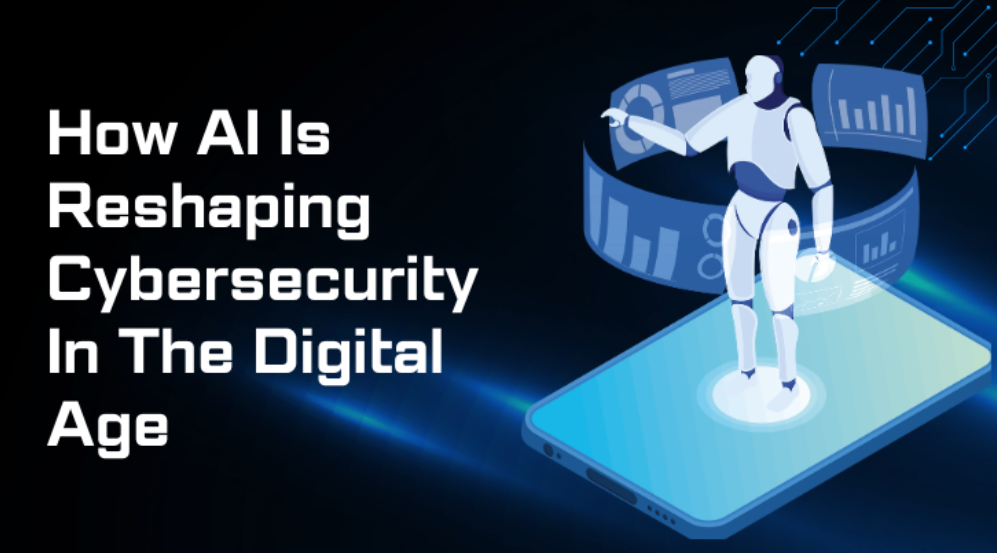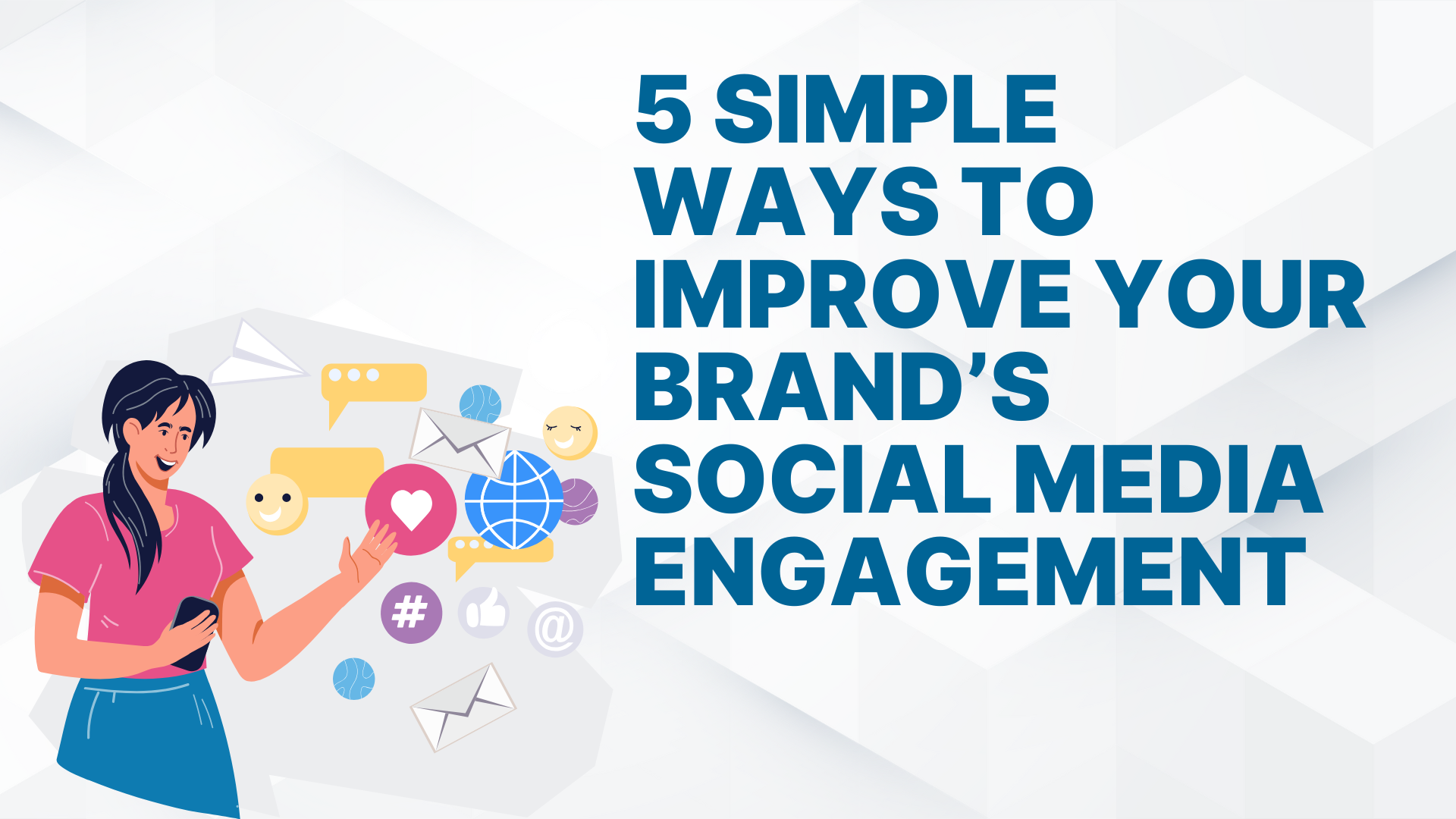What Is Content Writing?
Content writing is the process of creating written material for various digital or print platforms with the primary aim of conveying information, engaging an audience, or promoting a specific message, product, or service. Content writing encompasses a wide range of formats and styles, including articles, blog posts, web pages, social media posts, emails, product descriptions, newsletters, and more.
Difference Between AI And Manual Content Writing
AI (Artificial Intelligence) and manual content writing are two distinct approaches to creating written content, each with its own set of characteristics, advantages, and limitations. Here are the key differences between AI and manual content writing:
Authorship:
AI Content Writing: AI-generated content is authored by computer algorithms and machine learning models. AI systems analyze data and generate text based on patterns and algorithms.
Manual Content Writing: Manual content writing involves human authors who create content through their own creativity, research, and expertise.
Speed and Efficiency:
AI Content Writing: AI can produce content at a much faster rate than human writers. It can generate large volumes of content quickly and consistently.
Manual Content Writing: Human writers may require more time to research, draft, and edit content, which can be slower for generating high volumes of text.
Consistency:
AI Content Writing: AI ensures a high level of consistency in writing style, tone, and formatting across large bodies of text.
Manual Content Writing: Human writers may introduce variations in style and tone, which can be an advantage or disadvantage depending on the context.
Creativity and Originality:
AI Content Writing: AI-generated content is based on existing data and patterns, which may limit creativity and originality. It tends to produce content that is fact-based and less imaginative.
Manual Content Writing: Human writers can bring creativity, storytelling, and unique perspectives to their content. They can create original and innovative pieces.
Understanding of Nuance:
AI Content Writing: AI may struggle to grasp nuanced or context-dependent aspects of language, humor, cultural references, or specialized domains.
Manual Content Writing: Human writers can understand and incorporate nuances, cultural references, and domain-specific knowledge into their writing.
Adaptability:
AI Content Writing: AI can be trained and adapted for specific tasks and industries, but it may not have the adaptability and domain expertise of human writers.
Manual Content Writing: Human writers can adapt to various writing styles, industries, and audience preferences more flexibly.
Quality Control:
AI Content Writing: While AI can generate content quickly, quality control and editing are essential to ensure the accuracy, coherence, and relevance of the content.
Manual Content Writing: Human writers can exercise direct control over content quality during the writing process.
Domain Knowledge:
AI Content Writing: AI may lack in-depth domain knowledge and may not provide expert insights or analysis in specialized fields.
Manual Content Writing: Human writers can draw on their expertise and research to provide in-depth, authoritative content in specific domains.
Creativity and Subjectivity:
AI Content Writing: AI cannot inject personal experiences, emotions, or subjective perspectives into content.
Manual Content Writing: Human writers can infuse content with personal experiences, emotions, and subjective viewpoints, making it more relatable.
AI content writing is valued for its speed, consistency, and scalability, making it suitable for generating large volumes of content quickly. However, it may lack the creativity, nuance, and domain expertise that human writers bring to the table. Manual content writing, on the other hand, offers creativity, originality, and a deep understanding of context but may be less efficient for high-volume content production. The choice between AI and manual content writing depends on the specific goals, requirements, and context of the content creation task.
How AI Is Transforming SEO Content Writing
Artificial Intelligence (AI) is revolutionizing many aspects of the digital landscape, and one area where its impact is particularly pronounced is SEO (Search Engine Optimization) content writing. As search engines continually refine their algorithms and user expectations evolve, businesses and content creators are turning to AI to stay ahead of the curve. In this comprehensive guide, we will explore the transformative role of AI in SEO content writing, its key benefits, tools, challenges, and the future of this dynamic synergy.
1. Automating Content Generation
AI-powered content generation tools, known as Natural Language Generation (NLG), have made significant strides in creating human-like text. These systems analyze vast datasets to produce written content for various purposes, including blog posts, product descriptions, and news articles.
Benefits:
Efficiency: AI can generate content at a much faster rate than human writers, enabling businesses to scale their content production.
Consistency: AI ensures consistent writing style and tone, maintaining a brand's voice across all content.
Challenges:
Quality Control: While AI can produce content quickly, maintaining high-quality and engaging writing can be challenging.
Originality: AI-generated content may lack creativity and originality, which can be a drawback in certain industries.
AI Content Generation Tools:
GPT-3: OpenAI's GPT-3 can generate coherent and contextually relevant text based on input prompts.
Wordtune: Provides real-time suggestions to improve writing quality and style.
ShortlyAI: Offers AI-generated blog post outlines and content for various topics.
2. Content Optimization with AI
AI-driven tools can analyze existing content and provide optimization recommendations to improve SEO performance. These tools examine factors like keyword usage, readability, and content structure.
Benefits:
SEO Improvement: AI can help optimize content for target keywords, increasing search engine rankings.
User-Friendly: Content is tailored for readability and user engagement, enhancing the user experience.
Challenges:
Over-Optimization: Overusing keywords can lead to unnatural-sounding content and potential penalties from search engines.
Limited Context: AI may not fully understand the nuances of a specific topic, leading to inaccurate optimization suggestions.
AI Content Optimization Tools:
SurferSEO: Analyzes top-ranking pages to provide optimization recommendations for your content.
Clearscope: Offers content optimization suggestions based on top-ranking pages and related keywords.
MarketMuse: Uses AI to provide content briefs and optimization recommendations.
3. Natural Language Processing for SEO Insights
Natural Language Processing (NLP) AI models can analyze large volumes of text data to extract insights, trends, and user sentiments. These insights inform content strategies and help businesses stay attuned to customer preferences.
Benefits:
Content Strategy: NLP helps identify trending topics and user preferences, guiding content creation.
Competitor Analysis: Analyzing competitor content can reveal content gaps and areas for improvement.
Challenges:
Data Privacy: NLP models require access to large datasets, raising concerns about data privacy and ethical use.
Algorithm Updates: Keeping up with evolving NLP algorithms and models can be challenging.
AI NLP Tools for SEO Insights:
Google's BERT: Google's Bidirectional Encoder Representations from Transformers (BERT) algorithm understands context and search intent better, influencing SEO strategies.
SEMrush: Provides NLP-powered tools for content optimization, competitor analysis, and topic research.
MonkeyLearn: Offers sentiment analysis and text classification for understanding customer opinions.
4. Chatbots for User Engagement
AI-driven chatbots enhance user engagement and provide real-time support. When implemented on websites, they can answer customer queries, guide visitors, and gather data for content improvement.
Benefits:
24/7 Availability: Chatbots provide round-the-clock customer support, improving user satisfaction.
Data Collection: Chatbot interactions yield valuable user data, helping businesses identify content gaps and FAQs.
Challenges:
Initial Setup: Setting up an effective chatbot requires careful planning and integration with existing systems.
Complex Queries: Chatbots may struggle with highly technical or context-dependent queries.
AI Chatbot Tools:
Zendesk Chatbot: Provides AI-driven chatbots for customer support.
Drift: Specializes in conversational marketing and sales chatbots.
Dialogflow: Offers natural language understanding for building chatbots and virtual assistants.
5. Semantic Search and AI
Search engines, like Google, increasingly use semantic search to understand the context of user queries. AI plays a vital role in this process, as it helps search engines deliver more relevant results by considering the intent behind queries.
Benefits:
Improved Rankings: Content that aligns with semantic search principles is more likely to rank well.
User-Centric: Semantic search focuses on providing content that matches user intent, leading to better user experiences.
Challenges:
Algorithm Complexity: Keeping up with semantic search algorithm changes can be demanding.
Content Adaptation: Adapting content to semantic search may require changes in writing style and strategy.
AI-Powered Semantic Search Tools:
Google's Hummingbird: An algorithm update that emphasizes understanding user intent and context.
LSI Keywords: AI tools can identify Latent Semantic Indexing (LSI) keywords to include in content.
Schema Markup: Not a tool but an important strategy, using schema markup helps search engines better understand content.
6. AI for Content Distribution and Promotion
AI-driven algorithms can analyze audience behavior and content performance data to optimize content distribution. AI tools assist in identifying the best times to post, which platforms to use, and which audiences to target.
Benefits:
Content Reach: AI-driven content promotion ensures content reaches the right audience at the right time.
Cost Efficiency: AI can optimize ad spend by targeting the most responsive audiences.
Challenges:
Algorithm Updates: Social media and advertising algorithms frequently change, affecting content distribution strategies.
Content Quality: Effective promotion relies on high-quality content; AI cannot compensate for subpar material.
AI Content Distribution and Promotion Tools:
Buffer: Uses AI to schedule social media posts at optimal times.
Hootsuite: Offers AI-driven social media scheduling and monitoring.
Outbrain: Uses AI to recommend content to relevant audiences on various websites.
7. Multilingual SEO with AI
AI-driven translation and localization tools enable businesses to reach a global audience by creating content in multiple languages. These tools can translate, adapt, and optimize content for international SEO.
Benefits:
Global Reach: Expand your audience by providing content in multiple languages.
Consistency: AI ensures consistent messaging across different language versions of your content.
Challenges:
Cultural Sensitivity: AI may not fully grasp cultural nuances, leading to potential misunderstandings in translation.
Quality Assurance: Human oversight is essential to ensure accurate and contextually relevant translations.
AI Multilingual SEO Tools:
Google Translate: Provides machine translation for multiple languages.
DeepL: Offers neural machine translation for high-quality translations.
Translate.com: Provides translation services with a focus on e-commerce and business.
8. AI-Powered Content Analytics
AI-driven content analytics tools offer deep insights into how content performs across various metrics. They track user engagement, conversions, click-through rates, and other KPIs to guide content strategies.
Benefits:
Data-Driven Decisions: AI analytics help content creators make informed decisions based on performance data.
ROI Assessment: Measure the return on investment (ROI) of content marketing efforts.
Challenges:
Interpreting Data: Understanding and acting on complex analytics data may require expertise.
Algorithm Accuracy: Ensuring AI analytics algorithms accurately measure content performance is crucial.
AI Content Analytics Tools:
Google Analytics: Provides extensive content performance tracking and insights.
ContentSquare: Offers AI-driven insights into user behavior on websites.
BuzzSumo: Analyzes content performance on social media and identifies influential content.
9. AI for Voice Search Optimization
With the rise of voice-activated devices and digital assistants like Siri and Alexa, optimizing content for voice search has become vital. AI-driven tools help businesses tailor their content to match the conversational queries users make via voice.
Benefits:
User-Centric Content: Voice search optimization focuses on answering users' questions directly, improving user satisfaction.
Competitive Advantage: Early adoption of voice search optimization can give businesses an edge in search engine rankings.
Challenges:
Changing Search Behavior: Voice search queries differ from text-based queries, requiring adjustments in content strategy.
Accuracy: Optimized content must provide accurate and helpful responses to voice queries.
AI Tools for Voice Search Optimization:
Amazon Alexa Skills Kit: Helps businesses create voice-activated content for Alexa.
Google Assistant Actions: Allows businesses to build voice interactions for Google Assistant.
Siri Shortcuts: Enables businesses to integrate with Siri on Apple devices.
10. Content Creation Assistance
AI-powered content creation assistance tools offer suggestions and improvements while human writers draft content. These tools enhance the writing process by providing guidance and enhancing the quality of content.
Benefits:
Enhanced Writing: AI tools offer real-time recommendations to improve grammar, style, and readability.
Time Efficiency: Writers can produce content more efficiently with AI-assisted writing.
Challenges:
Dependency: Overreliance on AI may hinder writers' creativity and growth.
Subject Matter Expertise: AI may lack in-depth knowledge on specialized topics.
AI Content Creation Assistance Tools:
Grammarly: Provides real-time grammar and style suggestions while writing.
Hemingway Editor: Highlights complex sentences and suggests improvements for readability.
ProWritingAid: Offers a comprehensive writing assistant with grammar, style, and plagiarism checks.
The Future of AI in SEO Content Writing
The transformative impact of AI in SEO content writing is set to continue evolving. Some key trends and developments to watch for include:
1. AI-Enhanced Content Creation: AI will continue to assist and improve content creation, ensuring high-quality, engaging, and personalized content at scale.
2. Advanced NLP Models: Evolving NLP models will enable AI to better understand context and user intent, resulting in more precise content recommendations.
3. Visual Content Optimization: AI will play a more significant role in optimizing visual content, such as images and videos, for search engines.
4. Ethical AI Usage: As AI use grows, ethical considerations surrounding content creation and data privacy will become more critical.
5. AI-Driven Personalization: AI will help businesses personalize content for individual users, providing tailored experiences.
6. Voice Search Evolution: Optimization for voice search will become even more critical as the use of voice-activated devices continues to rise.
7. Multimodal Content: AI will enable the creation of content that combines text, images, audio, and video for more engaging user experiences.
In conclusion, AI is reshaping the landscape of SEO content writing by streamlining content creation, optimizing for search engines, and enhancing user experiences. While AI offers numerous benefits, content creators must balance automation with human expertise to ensure content remains valuable, engaging, and authentic. As AI technology continues to advance, businesses that leverage AI in their SEO content strategies will be better equipped to navigate the ever-changing digital landscape and stay competitive in their respective industries.

















Post Comments